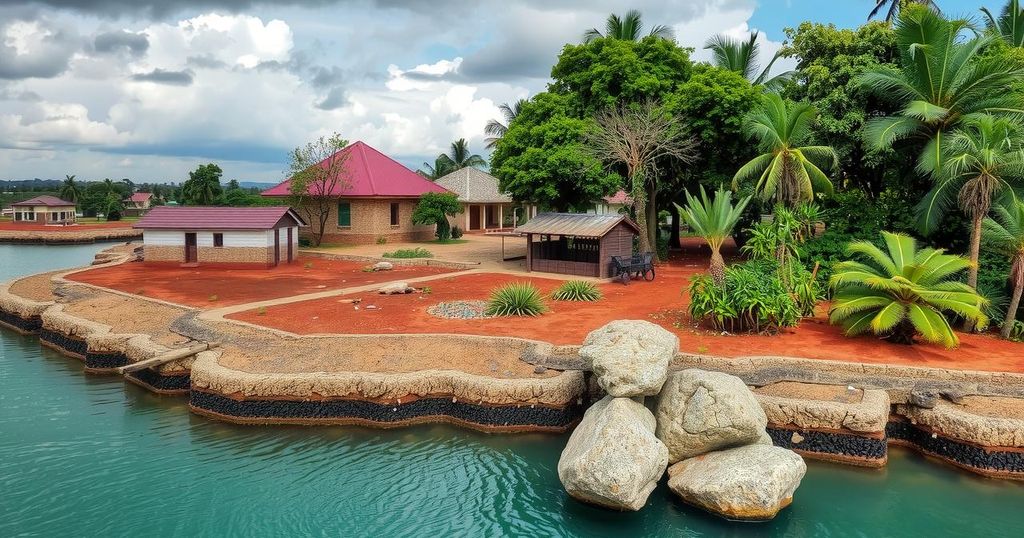World news
AFRICA, CHI, CHIDO, CLIMATE, CLIMATE CHANGE, CLIMATE CHANGE AND METEOROLOGICAL SERVICES, FRENCH INDIAN OCEAN, GLOBAL WARMING, GUY TAYLOR, INAM, LUCY MTILATILA, MALAWI, MOZAMBIQUE, NATIONAL INSTITUTE OF METEOROLOGY, NATURAL DISASTERS, PARIS AGREEMENT, PEMBA, UNICEF, ZIMBABWE
Daniel O'Connor
0 Comments
Cyclone Chido Highlights Increasing Climate Challenges in Mozambique and Malawi
Cyclone Chido devastated northern Mozambique, leading to thousands of displacements and highlighting the increasingly severe effects of climate change in southern Africa. The cyclone, with winds of up to 260 km/h, raises concerns regarding immediate humanitarian needs and long-term impacts on children and infrastructure. Ongoing assessments indicate a challenging rebuilding process for communities still recovering from previous cyclones.
Cyclone Chido has inflicted severe damage across northern Mozambique after its landfall on December 15, 2024, impacting the regions of Cabo Delgado and Nampula. The cyclone carried with it winds reaching 260 km/h (160 mph) and has displaced thousands. The recent pattern of intense storms in southern Africa, exacerbated by climate change, indicates a troubling trend that entails increased frequency and severity of cyclones. Lucy Mtilatila, Director of Climate Change and Meteorological Services in Malawi, underscored the alarming transition to more frequent cyclonic activity, noting that events previously occurring only once per decade are now happening much more often.
The full extent of destruction caused by Chido remains unclear as assessments are ongoing, particularly in remote districts suffering from power outages. Reports indicate that over 250 mm (10 inches) of rain fell within 24 hours, leading to floods, building damage, and significant humanitarian needs. Guy Taylor from UNICEF expressed deep concerns regarding not only the immediate casualties but also the long-term repercussions for children and healthcare access. Emergency shelters have been established for over 2,800 displaced individuals in Pemba, but additional assistance is crucial as communities grapple with the aftermath.
Mozambique and Malawi have faced a rising tide of weather-related catastrophes due to climate change. Major storms in recent years, including Cyclone Freddy in 2023, Cyclone Gombe in 2022, and Cyclone Idai in 2019, have highlighted the growing vulnerability of these nations. The increasing temperatures in the Indian Ocean create conducive conditions for cyclones to develop more frequently. As infrastructure rebuilding continues from prior disasters, communities now face the added strain of Cyclone Chido’s devastation and the overarching threat of climate change-induced weather abnormalities.
The ongoing challenges posed by Cyclone Chido signify a pivotal moment for Mozambique and Malawi as they confront the realities of climate change and its consequences. With a pattern of intensified cyclonic activity threatening to destabilize communities, it becomes paramount for local governments and international organizations to enhance resilience, advance infrastructure development, and support food security initiatives. The collective hope is for greater international collaboration to address the underlying causes of climate change and to better prepare vulnerable populations for the future.
Original Source: www.dw.com




Post Comment